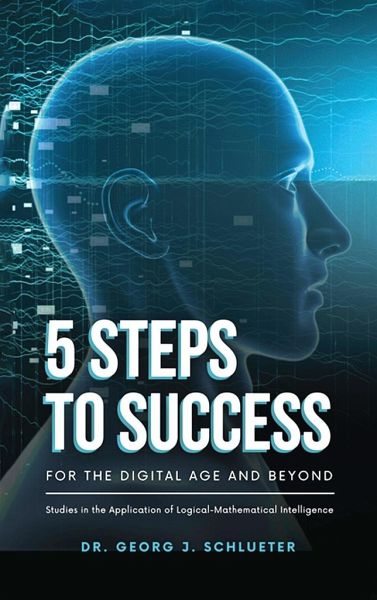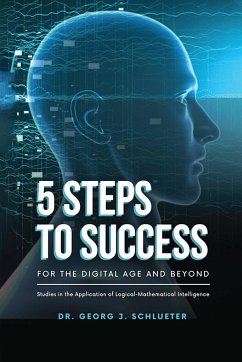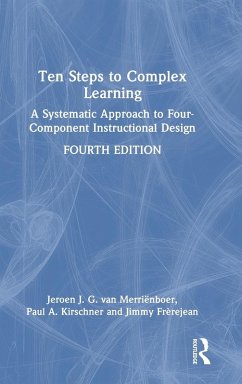
5 Steps to Success for the Digital Age and Beyond
Studies in the Application of Logical-Mathematical Intelligence

PAYBACK Punkte
31 °P sammeln!
A healthy economy depends on the society's productive implementation of new technologies and their applications. In contrast, innovation failures have far-reaching devastating consequences on the economy and the society's wellbeing. As the digital transitions face the society with complex challenges and great benefits and risks, a structured approach is needed to maximize success and minimize risk. The author makes a fundamental contribution with his impactful Synergetic Five-Step Innovation Process. He proposes that a "Logical Gedanken-Modell" defines a perceived ideal solution and mends it i...
A healthy economy depends on the society's productive implementation of new technologies and their applications. In contrast, innovation failures have far-reaching devastating consequences on the economy and the society's wellbeing. As the digital transitions face the society with complex challenges and great benefits and risks, a structured approach is needed to maximize success and minimize risk. The author makes a fundamental contribution with his impactful Synergetic Five-Step Innovation Process. He proposes that a "Logical Gedanken-Modell" defines a perceived ideal solution and mends it into a well-functional system. Subsequently, the Gedanken-Modell and the perceived ideal conflict-free solution must be analyzed by way of "Logical-Mathematical Intelligence". to assure that all variables of an innovation are properly considered to maximize success and prevent failure. The author explores the intelligences that underly major past inventions and traces the practiced processes with his synergetic five-step approach. He discovers that his five-step approach can be viewed as a natural law that is always present whether the inventor is aware of it or not. He observes that the inventor's awareness of the five-step approach could have enhanced past inventions' extraordinary potential and could have prevented fatal failures, their catastrophic consequences, and the society's enormous financial loss and the loss of human lives. The book sheds new light on the risks involved in Columbus courageous voyage across the Atlantic Ocean, confirms Senan Molony's hypothesis about the Titanic's hidden misfortune, and assembles the unfortunate events leading to the extraordinary Chernobyl disaster that has been in the making for more than 20 years. Schlueter and his student teams applied Logical-Mathematical Intelligence to explain today's traffic flow phenomena and to assess future mass mobility requirements. His vision for opportunities offered by digital technologies enabled him to create ideal conflict-free traffic management systems for freeways and county roads that can facilitate an effective mobility ecosystem.












